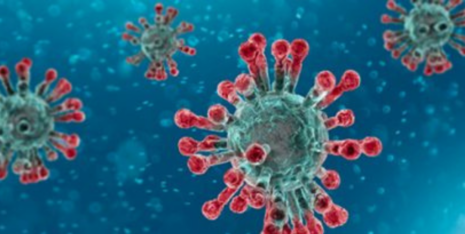
COVID-19: Coronavirus Information and Resources
Below are some of the best resources and websites available for information about COVID-19.
National
U.S. Food and Drug Administration
United States and Countries Worldwide
CDC COVID Data Tracker (Includes cases, hospitalizations, deaths and vaccinations)
State
Wisconsin Department of Health Services
Milwaukee County’s COVID-19 Page
Milwaukee County COVID-19 Dashboard
Medical College of Wisconsin COVID-19 Information
GLHF COVID-19 Information and Resources
StaySafeMKE.org — Tips on how to stay safe and the latest information on testing. You can also download Stay Safe graphics to show your support and encourage others to #StaySafeMKE.
Got COVID-19 Questions? Ask the Milwaukee Health Department! The Milwaukee Health Department (MHD) launched ASKMHD to provide answers in an efficient, streamlined way. All questions are sent to the appropriate department for follow-up or will be answered directly. Send your questions to askmhdcovid19@milwaukee.gov and you will get answers.
Spring 2023: The CDC Added COVID-19 Information Collection to the Community Counts Registry. Information is Now Live!
The CDC Community Counts COVID-19 supporting documents have been sent by CDC to the designated Community Counts Surveillance Contacts as listed in the CDC HTC Directory. The documents are also available on the ATHN support site under the Community Counts tab. Read more.
New activities have been initiated to add COVID-19 information collection to the Community Counts Registry. COVID-19 is a major public health concern and a priority for CDC. The purpose of collecting information about COVID-19 in the Registry is to learn about the impact and burden of COVID-19, specifically in persons with bleeding disorders. The new Community Counts COVID-19 activities have been developed in collaboration with a workgroup with representation from CDC, ATHN, regional leadership, HTC staff, and persons with bleeding disorders. For the most up-to-date treatments and medications, visit the Centers for Disease Control and Prevention’s website.
COVID-19 History Questions
Questions about COVID-19 will be added to the Registry in January 2023.
- Has the participant been diagnosed with COVID-19? If so, when? Did the participant test positive for COVID-19 or was the diagnosis based on symptoms?
- Was the participant hospitalized, admitted to an intensive care unit, or placed on mechanical ventilation due to COVID-19 infection?
- Has the participant been vaccinated against COVID-19? If so, what vaccine was received and what were the administration date(s)?
COVID-19 Antibody Testing
COVID-19 antibody testing for stored and real-time specimens will begin in Spring 2023.
- For HTCs that opt-in, antibody testing of specimens stored at CDC will be performed. Antibody testing of real-time specimens received at CDC will also be performed for patients of HTCs participating in real-time testing who opt-in.
- Stored serum or plasma specimens collected for Community Counts since July 2019 will be tested.
Vaccinations: Information, Guidance and Updates
COVID-19 Vaccination Available for Children and Teens: The Centers for Disease Control and Prevention (CDC) now recommends that children five and older get vaccinated for COVID-19. Learn more.
NHF Statement on Approval of the Pfizer-BioNTech Vaccine for Children Ages 5-11.
Booster Shots Available for Eligible, Vaccinated Adults: Some COVID-19 vaccine recipients can now get booster shots. Who is eligible? Learn more.
COVID-19 Vaccines and Bleeding Disorders: FAQs and Guidance
These FAQs were created in anticipation of questions or concerns individuals with bleeding disorders may have about the new COVID-19 vaccines. Read more.
COVID-19 Vaccination Guidance
It is important that hemophilia treatment centers, in close collaboration with patient organizations, take action to inform people with bleeding disorders about the COVID-19 vaccines and contribute to an effective vaccination program. Read more.
What You May Feel After Getting the COVID-19 Vaccine
It’s important that people understand that there may be some side effects after receiving the COVID-19. These can range from a slightly sore arm to fever and chills. These bodily reactions are your immune system reacting to the vaccine and not an indication that you have come down with COVID, and most disappear after a day or two. Read more experiences from those who have received the vaccine here.
Frequently asked questions about vaccines (Medical College of Wisconsin)
The Medical College of Wisconsin has launched a website providing answers to frequently asked questions about vaccines. Learn the basics of vaccines and why they are so important to the health of our community. Read more.
COVID-19 Vaccine Doesn’t Cause Shingles: The epidemic of coronavirus disinformation continues to rage across the internet. Lately, Google searches for “covid shingles” have hit an all-time high. Experts have found no connection between the coronavirus vaccine and shingles – but if you’re concerned, there is a very effective shingles vaccination available, too. Learn more.
KFF COVID-19 Vaccine Monitor Dashboard. The KFF COVID-19 Vaccine Monitor is an ongoing research project tracking the public’s attitudes and experiences with COVID-19 vaccinations. Using a combination of surveys and qualitative research, the KFF COVID-19 Vaccine Monitor tracks the dynamic nature of public opinion as vaccine development and distribution unfold, including vaccine confidence and hesitancy, trusted messengers and messages, as well as the public’s experiences with vaccination as distribution begins.
Vaccine Adverse Event Reporting System (VAERS): The most recent information indicates that about 20% of Americans will definitely not or only take a vaccine if required. The United States Vaccine Adverse Event Reporting System (VAERS) reports that non-serious reactions are reported in about 372 out of every million (0.037%) administered doses of the Pfizer/BioNTech mRNA vaccines (https://vaers.hhs.gov). The most frequently reported adverse events are pain at the injection site, fatigue, headache and muscle pain. Each is more common after the second dose.
Read New COVID-19 FAQs
NHF recently updated its COVID-19 FAQ web page. See the latest community questions and guidance and share with others who might be interested. Read more.
Source: National Hemophilia Foundation, August 2021
NHF: COVID-19 Vaccines and Bleeding Disorders: Frequently Asked Questions (FAQ’s)
These FAQs were created in anticipation of questions or concerns individuals with bleeding disorders may have about the new COVID-19 vaccines. Read more.
Living with Bleeding Disorders in the Time of COVID
by: Sari Harrar
Pandemic stories of strength, perseverance and resiliency from three members of the bleeding disorders community.
The COVID-19 pandemic has affected the lives of all Americans in ways large and small. More than 600,000 Americans have died, and millions more are coping with long-term effects of the disease. And like everyone else in the US, people with bleeding disorders, family members and healthcare providers in the bleeding disorders community have had to make adjustments to every aspect of their lives. Three members of the bleeding disorders community who have been significantly impacted by the pandemic talk about their experiences over the past year. Read their stories.
World Federation of Hemophilia: Specific Risks of COVID-19 to the Bleeding Disorders Community
The COVID-19 Task Force of the World Federation of Hemophilia (WFH) has released a statement on risks of acquiring COVID-19 disease and specific risks this infection presents to those with a bleeding disorder. Key takeaways are summarized in the full article. The full announcement includes sources at the Centers for Disease Control CDC ), the World Health Organization (WHO) and the Hemlibra website Read the full statement o on WFH’s website.
COVID-19 Tracing App Launches in Wisconsin
A new mobile app to assist in notifying contacts of people who’ve tested positive for COVID-19 is now live. WI Exposure Notification complements the state’s and partner agencies’ efforts in contact tracing by informing Wisconsinites if they’ve been in close contact with someone who has tested positive for COVID-19. Get the App.
Test Up MKE Launches
Test Up MKE is a new website launched to provide the latest COVID-19 information and testing access. You can also visit the Department of Human Services website where you can find testing locations across Wisconsin by state. Click here for information. Note: For testing locations across Wisconsin, click here.
Keeping Mental Health in Mind
As we continue into winter, it’s important to keep mental health in mind — especially this year. The Medical College of Wisconsin encourages you to take care of your mental health and know that you’re not alone. For tips to manage stress, coping mechanisms, and information on seasonal affective disorder. Also, remember there are local mental health resources available to help residents. For free help and resources, call the Milwaukee County mental health crisis line at (414) 257-7222. The crisis line is available 24 hours a day and 7 days a week. More information.
Financial, Energy and Meal Assistance Programs
Need Help Managing the Financial Impacts of COVID-19?
Are you stressed about your finances? The Financial Navigators program helps city of Milwaukee residents deal with the financial impacts of COVID-19. The City of Milwaukee, in partnership with Riverworks Development Corporation, created this free service to remotely connect residents with a trained Financial Navigator to receive one-on-one guidance on managing their financial issues. Sign up at Milwaukee.gov/FN or call (414) 882-7440 to get started. Register now.
Milwaukee County Mortgage Assistance Program
The Milwaukee County Housing Division is partnering with Housing Resources, Inc. to provide mortgage assistance through CARES Act funding to eligible homeowners facing mortgage delinquency or foreclosure due to financial hardships as a result of the COVID-19 pandemic. Applications are being accepted now through Dec. 18, 2020. Homeowners can apply through a web-based application at https://www.hri-wi.org/mortgage-assistance.
Eviction Prevention Program
Milwaukee County designated a portion of its CARES Act funding for eviction prevention programs. So far, 4,600 applications for assistance have been received and $2 million in assistance has been provided through Community Advocates. There has been a decrease in eviction filings in the Milwaukee County courts, and some Milwaukee landlords are working directly with the County to address concerns and identify resources to help keep tenants in their homes. Read More.
Energy Assistance Available
Now is the time to apply for energy assistance. The income requirements have changed due to COVID-19. If you’ve previously applied and didn’t qualify, you are encouraged to apply again. When you qualify for the Energy Assistance program, you can access additional energy-saving and money-saving programs. Visit KeepWarmMKE.org for more information or to apply online. Learn more.
Milwaukee County Transit
For the current Milwaukee County Transit System (MCTS) requirements regarding COVID-19, visit their website.
World Federation of Hemophilia (WFH)
The WFH website has created several sections on their website dedicated to COVID-19 including: WFH Statements and Advisories, Regulatory Agencies and Partner Announcement Statements and Pharmaceutical Industry Statements.
Specific Risks of COVID-19 to the Bleeding Disorders Community
WFH eLearning Platform – To ensure all members of the bleeding disorder community have access to important clinical and patient-focused information, the WFH developed the WFH eLearning Platform. The platform features more than 500 important resources in six languages.
Hemophilia Federation of America (HFA)
The HFA has created a section on its website titled Coronavirus: What HFA is Doing.
The site includes a section on Frequently Asked Questions: Bleeding Disorders and COVID-19 that is frequently updated.
HFA has also created a Patient Voice Inbox for patient care and product availability concerns or issues. questions or issues regarding access to your products or care.
Centers for Disease Control and Prevention (CDC)
The CDC website has created a COVID-19 section on their website. It includes what top medical professionals and experts consider the most trusted, up-to-date information about COVID-19. All information and resources are multilingual. Click here to access CDC resources in languages other than English.
The U.S. Food and Drug Administration (FDA)
The FDA is working with U.S. government partners, including the CDC and internal partners to address the pandemic.
Along with other federal, state and local agencies and public health officials across the country, the FDA continues critical work to protect public health. Visit the FDA’s COVID-19 section of their website and Learn more about the FDA Covid-19 Response.
Other Helpful Websites
Covidactnow.org – Covid Act Now is a multidisciplinary team of technologists, epidemiologists, health experts and public policy leaders working to provide disease intelligence and data analysis on COVID-19 in the U.S. The website allows you to search by state or county and gives you answers to some of these questions: Is your community ready to re-open? Is COVID-19 decreasing? Are we testing enough? Are hospitals ready? Their partners include: Georgetown University Center for Global Health Science and Security, Stanford University Clinical Excellence Research Center, and Grand Rounds. They published their first version of their model on March 20. More than 10 million Americans have used the model since. They engaged with dozens of federal, state, and local government officials, including the U.S. military and White House, to assist with response planning.


